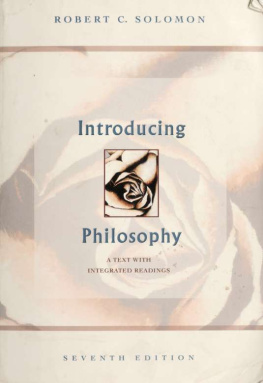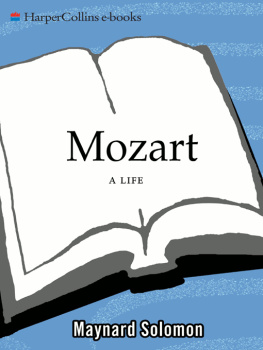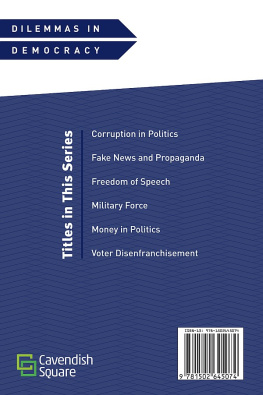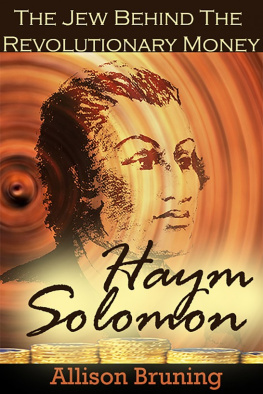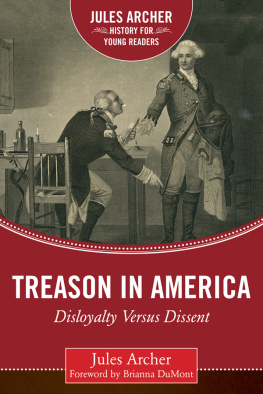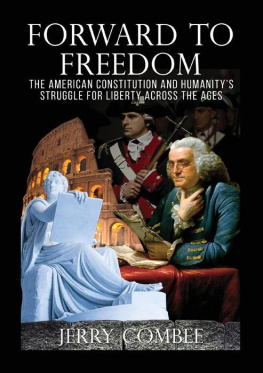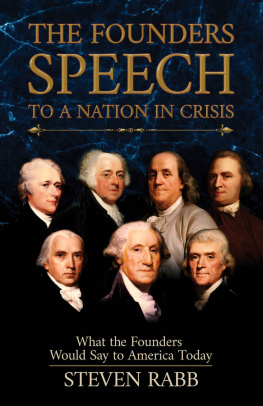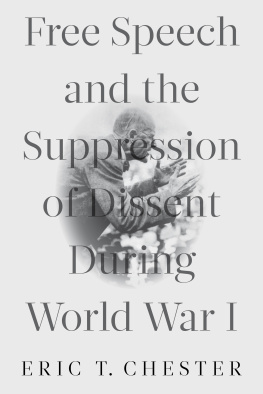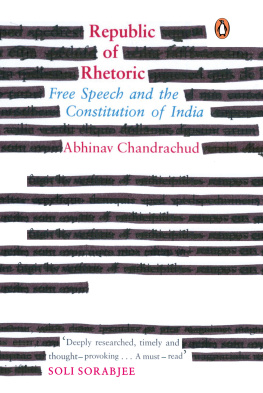Revolutionary Dissent
How the Founding Generation Created the Freedom of Speech
Stephen D. Solomon

St. Martins Press
New York
Thank you for buying this St. Martins Press ebook.
To receive special offers, bonus content, and info on new releases and other great reads, sign up for our newsletters.

Or visit us online at us.macmillan.com/newslettersignup
For email updates on the author, click here.
The author and publisher have provided this e-book to you for your personal use only. You may not make this e-book publicly available in any way. Copyright infringement is against the law. If you believe the copy of this e-book you are reading infringes on the authors copyright, please notify the publisher at: us.macmillanusa.com/piracy .
To Debbi Dunn Solomon, Brian Solomon, and Sarah Solomon
Thomas Hutchinson thought he had suffered criticism long enough. So in August 1767 he convened a grand jury to strike back at his critics. As lieutenant governor and chief justice of Massachusetts, Hutchinson was the second most powerful official in the colony, behind only the royal governor, Francis Bernard.
For several years, both Hutchinson and Bernard had been the targets of harsh attacks growing out of the imposition of the stamp tax that had instigated strong protests in Boston. The center of opposition was the radical Boston Gazette, whose publishers, Benjamin Edes and John Gill, were themselves partisans who worked closely with the opposition movement. Off their press came an unending salvo of protestsin the form of letters, articles, broadsides, and pamphletsthat attacked Bernard and Hutchinson as well as officials in London. Now the two top officials of the colony wanted some revenge to salve their wounds.
Delivering his charge to the grand jurors, Hutchinson asked them to punish Edes and Gill for their criticisms. He and others had been treated in the most abusive Manner, and vilified beyond all Bounds, he told them. Under the law of seditious libel, it was a crime to criticize the government, its policies, or officials, and thereby reduce the public esteem in which they were held. Conviction on such charges could send Edes and Gill to a miserable jail cell for a long time. Hutchinson implored the grand jurors to act. He enjoyed what appeared to be, at least by the common meaning of the law, a surefire case against Edes and Gill.
So it was to Hutchinsons surprise that the grand jurors did not agree to his demand for an indictment. But he did not give up. The chief justice tried twice more over the next few years and failed each time.
Americans today would certainly agree that a free press is essential to liberty. Authoritarian regimes know that the first strategy for maintaining their power is muzzling the press and stopping the free exchange of ideas. As Americans look at the world today, they would no doubt find it hard to comprehend that the law of the colonies during the founding period made it a criminal offense for a citizen to write an article critical of government officials. Americans of the twenty-first century enjoy the right to engage in robust debate about public affairs. Every day without fail, they offer endless commentary about their elected officials and the policies they pursue, and much of the conversation is scathing. The public sphere has grown decidedly democratic. The growth of electronic media has provided everyone who has access to the Internet a platform to say what he or she pleases.
How did it happen that America moved from oppression to liberty? From a reign of royal officials asking colonial juries for indictments against their critics to a time of robust expression? That is the story I tell in Revolutionary Dissent. I do so not by recounting Supreme Court decisions of the modern era that expanded the right to free expression, but instead by telling stories of how the founding generation itself rebelled against the tyranny of laws punishing political dissent. The broad freedom of expression and vigorous political culture enjoyed by contemporary Americans was actually born in this country centuries ago. It began haltingly in 1687 with the tax protest of the Puritan preacher John Wise. It continued with the dissent against British taxes that started in 1765 and reached its culmination during ratification of the Constitution in the late 1780s and finally in the battles over the Sedition Act in 1800. By discovering the stories of citizens who rose in protest during that period, all the while rejecting the repressive laws designed to silence them, we can comprehend what the founding generation understood by the freedom of speech and press. Some of those citizens, like Paul Revere and James Madison and Patrick Henry, are iconic figures in American history. But many others are barely known, if at allthe minister Wise, the shoemaker Ebenezer McIntosh, the privateer and merchant Alexander McDougall, the farmer John Dickinson, the editors Edes and Gill, the lawyer Andrew Hamilton, and others. All of them helped to create the American concept of freedom of expression.
Before they broke from Britain, the founding generation rebelled against the imposition of taxes and standing armies in their cities, but to do so they had to rebel also against prohibitions on political dissent that were a central part of English law. Restrictions on political expression reached far back into English history, and they provided officials several ways to punish critics. Through an elaborate licensing system, the Crown for many years after invention of the Gutenberg press enjoyed the right to censor any written work and thereby prevent publication of dissent altogether. Royal agents read manuscripts, deleted portions they found offensive to the government or religion, and decided whether to issue a license to allow publication. The licensing system finally expired in 1695, freeing writers to publish their work.
Though certainly welcomed, the demise of licensing still left dissenters at great risk. For the government had another weapon to control opposition speechthey could bring a criminal action for seditious libel. Parliament had made it a crime in 1275 to disseminate any slanderous News... or false News or Tales where by discord or occasion of discord or slander may grow between the King and his people or the other great men of the Realm.
Seditious libel came ashore in America as part of the common law adopted by the colonies. And it existed throughout the founding period as a sword poised to strike critics of the government. Hutchinson and Bernard were not the only officials to try to use the law against their enemies. Surely, then, you might think, ratification of the First Amendment in 1791 brought a swift end to this oppression, a clear rejection of speech crimes that were antithetical to its broad promise of political liberty. But history, unfortunately, is not so clear. The First Amendment, after all, contained no mention of seditious libel in its fourteen words pertaining to freedom of expressionCongress shall make no law... abridging the freedom of speech or of the pressand the drafters and ratifiers reached no consensus on its meaning. Indeed, Congress passed the Sedition Act of 1798, and the Adams administration began prosecutions that eventually landed many of its critics in jail.
Seditious libel was not eliminated easily from American law. Even in 1907, Justice Oliver Wendell Holmes wrote that the First Amendment meant nothing more than the old constrained English view expressed by Blackstone. In fact, the Supreme Court did not regularly use the First Amendment to strike down state or federal laws punishing speech until well into the twentieth century, when it began to strengthen safeguards on expression.
Next page

